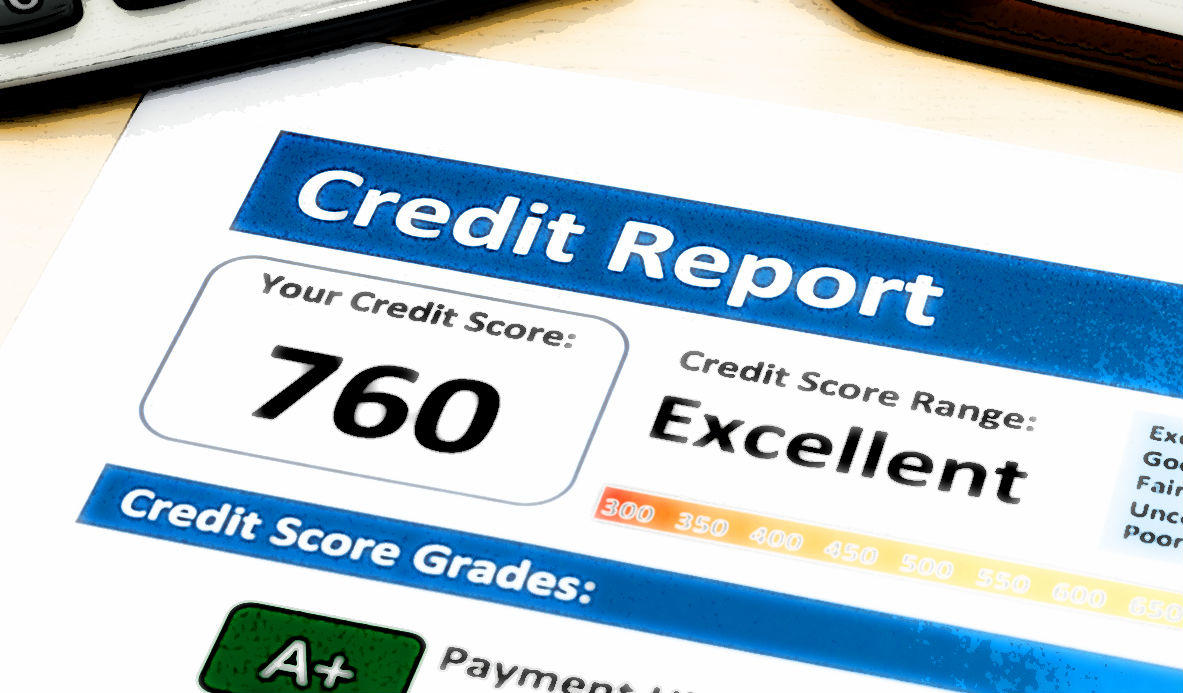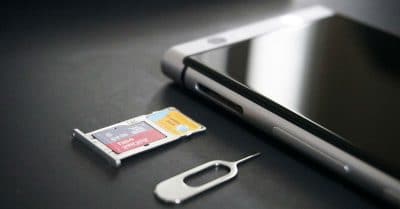How to Improve Your Credit Score
Your credit score can have a big impact on your life. Unfortunately, with a low credit rating, you'll find it tough to borrow money, get credit, or sign contracts such as mobile phone contracts. But bad credit doesn't have to last forever. With a little care and some planning, you can improve your credit score.
The Basics
Essentially, you want to make yourself look like a financially responsible person. Once companies think you're responsible with money, then they'll be more likely to lend you money and will lend at better rates. Yes, improving your credit score is going to take a little time. Depending on the state of your current score this could be days or months. But it is possible to raise your rating, and it's not difficult to do either!
Get Some Proof
There are two simple things that you can do to raise your credit score. The first of these is to apply for a bank account if you don't already have one. All lenders prefer someone with a stable financial account (even if it doesn't have thousands in it!).
The second simple fix is to make sure that you're on the electoral roll. This works as proof of your address, and companies can use it to ensure that you are who you say you are. Getting on the roll is easy, takes just a few minutes, and is free (as long as you're a UK or EU citizen).
Get Some History
Getting credit history isn't as tough as you'd think, and there are a couple of easy ways that you can use to show that you have experience with credit and that you're responsible. The first of these is the same as above: get yourself a bank account! An account that has an overdraft function counts as credit. Manage that account responsibly for a few months and your credit rating should increase.
Secondly, get credit for smaller things. Mobile contracts or a 12 month SIM only deal, credit cards, even lease-to-buy items, all count towards your credit rating (as long as you keep up monthly payments). It can be easier to get accepted for lower value items such as these, and act responsibly, raise your credit rating, and soon you'll be able to borrow on bigger ticket items (such as cars or mortgages).
Avoid Problem Areas
Just as it's possible to increase your credit score, it's possible to decrease it as well. Avoiding things that would decrease your score is as important as actively trying to increase your score. Obviously, the first thing you need to do is to ensure that you don't miss payments on any credit that you may already have. Missing a monthly credit card or mobile bill will affect your credit scores for the next six years! You also need to avoid defaulting on accounts, which means not paying back a loan at all.
You also need to try and avoid legal disputes, such as CCJs (County Court Judgements), IVAs (Individual Voluntary Arrangements), declaring bankruptcy, and Scottish Trust Deeds (all of which can be results of going too deeply into credit and not being able to repay debts). All these things negatively affect your credit rating. If any of these are unavoidable, work with your solicitor to try and resolve them as quickly as possible, so you can get back to working on your credit.
Think About Timing
There are a few timing-related issues that affect your credit rating too. The first of these is that you should try not to apply for too much credit at the same time. If you need a new mobile contract, a new car financing plan, and a new credit card, space those applications out over a few weeks or months. Too many applications at the same time tend to raise red flags with companies, who might think that you're too reliant on credit.
Then there's the issue of keeping credit accounts open. Ideally, you should keep credit accounts (such as credit cards) for as long as possible. The older your credit card, for example, the more responsible you look (as long as you're paying on time!), and the better it affects your credit score. Having said that, if you have credit accounts that you don't use at all, you should close them out. If you never spend anything on that credit card, let it go. This is because a company can look not just at how much you owe, but also at how much credit you potentially have available to you. It's better to have a few, long-standing accounts that you use responsibly than many accounts that show no activity.
Other Problems
There are a couple of “special case” scenarios that may also be affecting your credit score, so you'll want to keep these in mind:
- Identity Theft: If someone else steals your identity and uses it to get credit, it'll be your credit score that's affected. Keep an eye on your credit report, checking once a year or so, to ensure that there are no suspicious entries, such as accounts you didn't open or applications you didn't make. You can get your credit report from any of the major UK agencies for free once a year. Try Experian, Equifax, or TransUnion.
- Returning from Abroad: If you have been living abroad you may find that when you come to the UK you have no credit rating at all. However, some companies may accept a foreign credit history, or at least consider it when looking at your application. It's up to you to approach a credit reference agency from the country in question and get that credit report to include in your application (and you may need a certified translation too!).
What to Do If You're Rejected
So, you made an application for credit, and you've been rejected. Your first question should be why, and there are four main reasons why you could have been rejected:
- You have a bad credit history and have missed payments or defaulted on loans in the past. In this case, you're going to need to use the above advice to try and improve your credit rating before applying again.
- There was a mistake in your application, perhaps your address was wrong, or even something as simple as a phone number. Check your application carefully, and if you find a mistake, fix it, and re-apply.
- You have made too many credit applications in too short a space of time. Take a breather for a couple of weeks, then prioritise your applications. Apply for the most important credit first, wait a while, then the second most important, and so on. Spacing out your applications makes it easier to get accepted. As a general rule, the larger the amount of credit you're applying for the longer you should wait between applications.
- You're just not the target market for the company in question. Some companies simply aim their services as certain kinds of clients (perhaps those with high salaries, or even those with low credit ratings). In this case, there's not much you can do, you're probably going to need to find a different company to apply with.
In most cases, the fix for being rejected for credit is to wait, whilst following the advice you already have for improving your credit score as you're waiting. However, waiting might not always be an option. Perhaps you really need that mobile phone for work, maybe you can't live without that credit card. So what can you do while you're waiting?
I've Been Turned Down for a … What Should I do?
Mobile Phone Contract
The easy solution here is to opt for either a SIM only contract or a Pay As You Go SIM card. The reason you need credit to apply for a mobile contract is that the company needs to know that you're going to pay your monthly bill, and in the case of contracts that include a phone, that you're going to pay off the balance on that phone. A SIM only contract is a good compromise since it doesn't include a phone at all (only a monthly payment). In the case of really bad credit, PAYG SIM or no credit check SIM cards don't even require a monthly payment, since you load the SIM card up with credit beforehand.
Short Term Loan
If you've been rejected for a short term loan, then you have a couple of options. Since the loan is only for a short amount of time, you could potentially ask friends and family for the money, and in some cases, some employers may even offer an advance on salary.
There are also “no credit check loans.” As the name implies, this kind of loans gives you the money you need without running a credit check. The downside of these though is that interest rates tend to be exceptionally high. However, if you only need the loan for a month or two, high-interest rates may not be a big problem for you. Just make sure you compare rates amongst the direct lenders to get the best deal.
Car Financing
A car is an expensive proposition, meaning lenders tend to judge credit applications a little more harshly than with things like mobile phone contracts. Since you're looking to borrow quite a lot of money over a fairly long period of time, no credit check loans are probably a bad plan (since high-interest rates would cost you a fortune).
Your best bet if you've been turned down for car financing is to try and put down a larger amount as a deposit, meaning you need to finance a lower amount. This down payment could be borrowed from friends or family, or perhaps you need to wait and save up for a few months. It is not a good idea to get the down payment by taking out another loan (since this will send your credit rating down, meaning you probably won't get approved even for a lower car financing rate!).
Mortgage
Similar to car financing, a mortgage tends to be a large amount of money. Again, you could save up for a larger deposit and try reapplying for a lower amount of mortgage, but this could take some time. Absolutely your best plan if you've been turned down for a mortgage is to make an appointment with a mortgage broker. A broker will be in the best position to advise you on your next steps and may be able to help you find a lender that is better suited to your financial position and needs.
Credit Card
Being turned down for a credit card is tough since this means that it's difficult to build up your credit history and therefore get a better credit rating. Fortunately, many banks and other financial institutions have “credit builder cards.” These are credit cards that are specifically designed to help you build your credit rating, and it's relatively easy to get approved, even with no credit history at all.
The downside of these cards is that interest rates are very high, often more than 30%. This shouldn't be an issue if you pay off your card every month, however, since you won't be paying any interest at all. After using a credit builder card for a few months (and paying all your bills!), you should be able to re-apply for a normal credit card with lower interest rates.
Bank Account
Luckily, being turned down for a bank account is usually quite temporary. The reason you've been turned down is probably because the kind of account you applied for included an overdraft facility and/or credit or payment card. However, nearly all banks also offer a basic bank account. This will let you make direct debit payments and let your employer deposit your salary. You won't get a card, and you won't be able to overdraw the account (and if you do, the charges will be very high and direct deposit payments will not go through). But use your basic account sensibly and you should be able to upgrade to a normal account after a few months.
Other Credit Options
Finally, there are a couple of options to consider if you're having problems getting credit in any of the above scenarios:
- Credit Unions: A credit union is kind of like a bank, except that it's a non-profit organisation. Most credit unions will require that you save money with them for a few months before being able to borrow money. But once you do need to borrow money, there is a cap on the amount of interest they can charge. A credit union can charge only 3% interest per month (or 42.6% a year APR) on money loaned. They also are not allowed to charge penalties if you repay your loan early (many banks do this). If you can find a credit union close to you, these can be a great way to get credit.
- Budgeting Loans: In some cases, you may be able to borrow money interest-free with a government-sponsored budgeting loan. This will depend heavily on your circumstances, but it could be worth looking into.
- Payday Loans: In an absolute emergency, a payday loan could tide you over until your next pay cheque comes in. Payday loans give you fast cash. However, they also charge exceptionally high-interest rates by the day, and you tend to have only until your next payday to pay the loan back. Payday loans are NOT advisable, but in extreme cases may be your only option.




